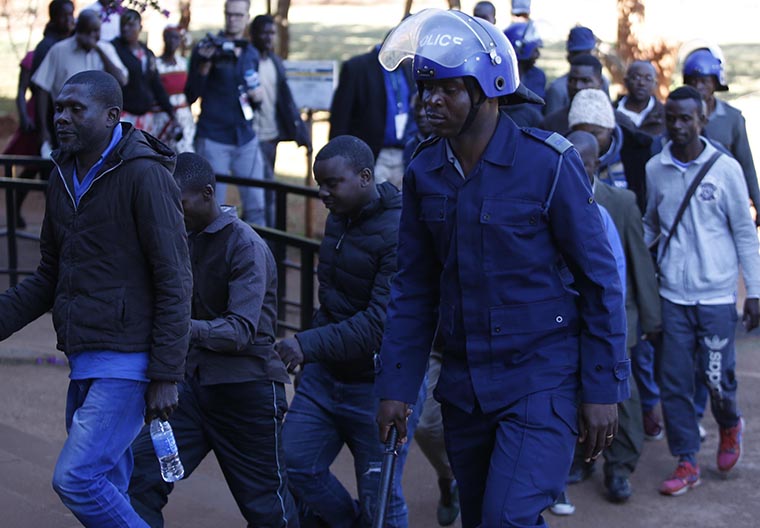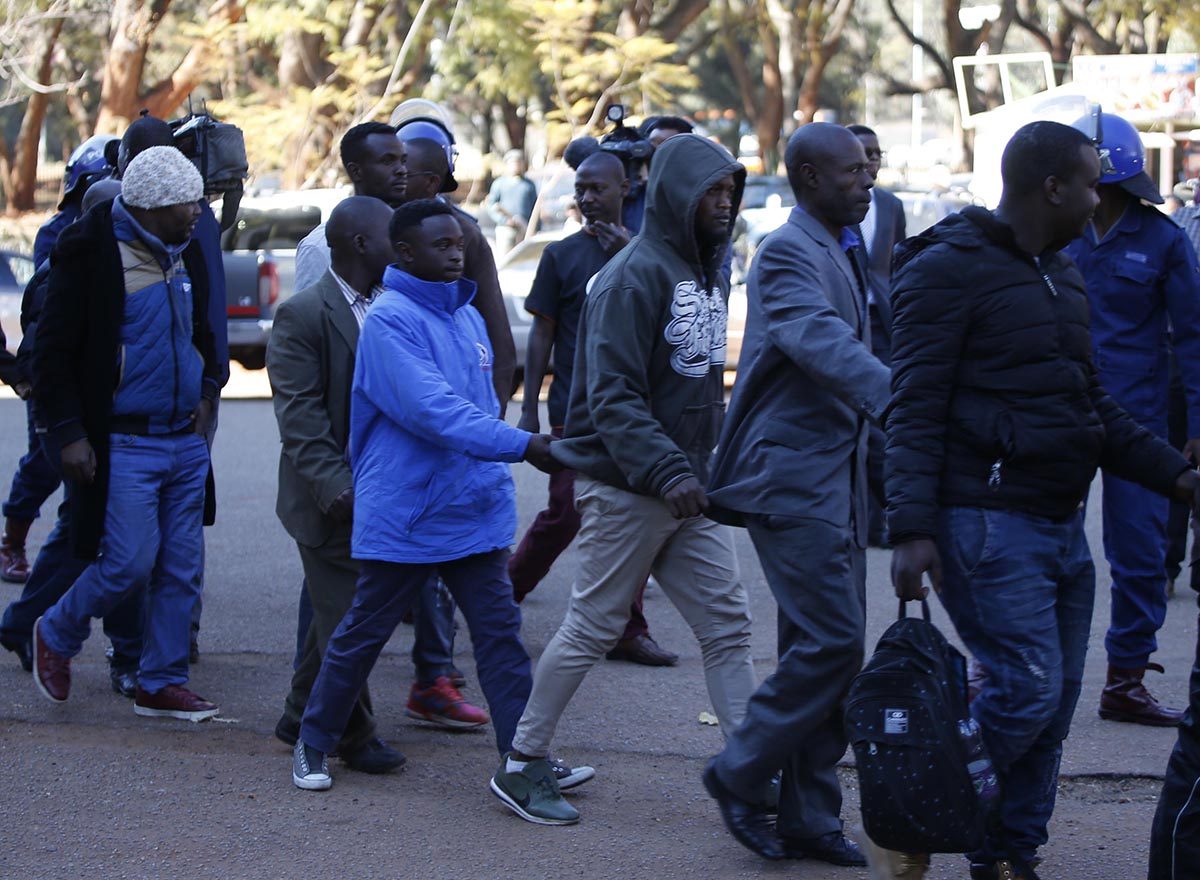HARARE – Soldiers were searching parts of Harare for opposition supporters to detain after the disputed election, the MDC Alliance said Saturday, as elsewhere mourners gathered for a victim of Wednesday’s military crackdown — a woman shot in the back.
Nkululeko Sibanda, the spokesperson for MDC Alliance leader Nelson Chamisa, spoke at a courthouse in Harare where more than 20 supporters accused of inciting public violence were told their bail hearing was pushed to Monday. Sibanda said they included people arrested on Thursday during a police raid on party headquarters.
“A lot of people are hiding,” Sibanda said. “It’s scarier than the Mugabe times.”
Residents of Kuwadzana and Mabvuku suburbs reported soldiers rampaging through their neighbourhoods at night, beating up people and robbing them of personal possessions.
The Media Institute for Southern Africa (Misa) msaid a journalist from NewsDay, Tinotenda Samukange, had been detained for three hours by the soldiers in Kuwadzana on Friday night. The media watchdog said it was the fifth violation by the military since August 1.
President Emmerson Mnangagwa has said he wants to work with the opposition to rebuild the country after decades of repression under his former mentor, Robert Mugabe, whom he deposed in a military coup last November.
Sibanda said he was concerned that the government could try to implicate opposition supporters in the deaths of seven people who were killed during the military crackdown in Harare. Soldiers opened fire on protesters, some of whom were rioting.
One of those killed was Sylvia Maphosa, 52, who was laid to rest on Saturday. She was not at the protest but had just left her workplace.
As riot police circulated in the capital, supporters of opposition leader Chamisa urged him to keep fighting a day after he forcefully rejected Mnangagwa’s election victory and alleged manipulation. Zimbabwe’s electoral commission has said the president won with 50.8 percent of the vote while Chamisa received 44.3 percent.
Mnangagwa had managed to avoid a runoff by just over 38,000 votes.
Chamisa has said the opposition’s own count shows he won the vote and that they would challenge the election results in court. “We’re doing all to secure your vote and defend your WILL,” he said Saturday on Twitter.
“What we want Chamisa to do for us is to not give up on our vote,” said one supporter in the capital, Tisi Habis. “No matter what the (Zimbabwe Electoral Commission) says, Chamisa is our president.”
International election observers who were invited by Mnangagwa’s government after years of being banned by Mugabe were pulling out after issuing mixed reports on Monday’s vote.
While the election itself was called peaceful, the observers expressed concern over the lack of transparency in the voters’ roll and the “extreme bias” of state-run media in favour of Mnangagwa. And in a joint statement the observers criticised the military’s “excessive” use of force.

A credible election is a crucial step for lifting international sanctions and attracting badly needed foreign investment in Zimbabwe’s long-collapsed economy.
Mnangagwa on Friday claimed the vote had been free and fair, praising the “unprecedented flowering of freedom and democracy in our beloved homeland” while saying he wanted an independent investigation into the deadly unrest.
Britain’s minister for Africa on Saturday said the government was “deeply concerned by the violence following the elections and the disproportionate response from the security forces.”
The U.S. State Department late Friday encouraged the release of fully transparent election results and said anyone with grievances should pursue them through legal channels, adding that “we encourage all political leaders to show magnanimity in victory and graciousness in defeat.”
















